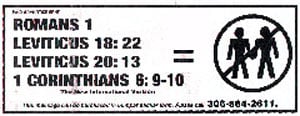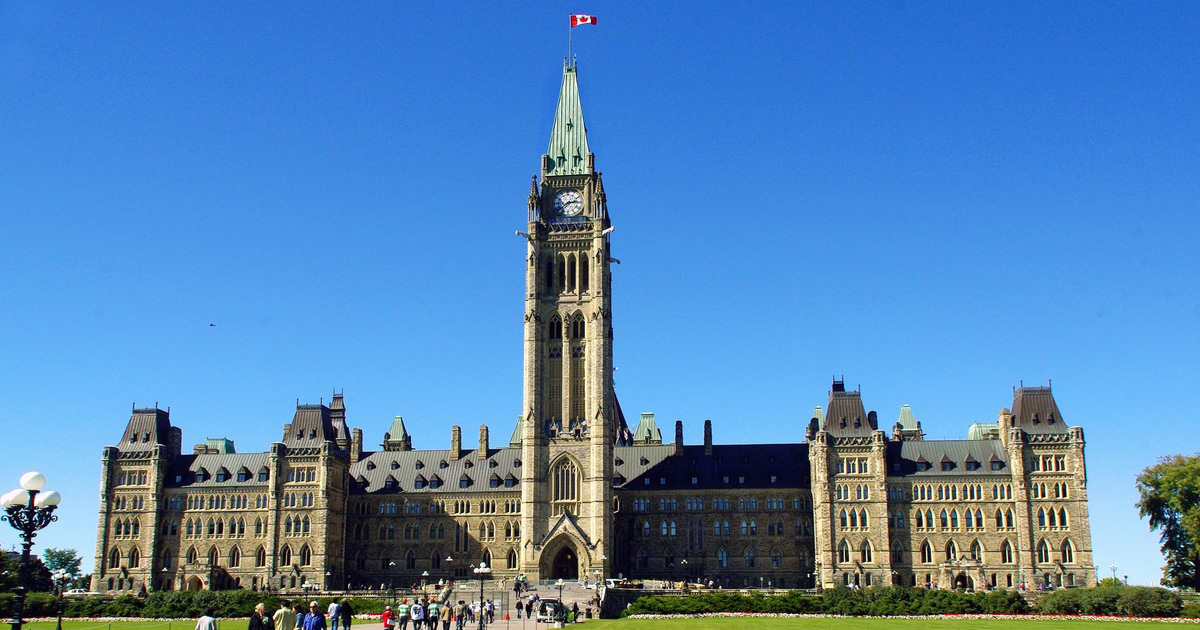 On April 13, the Saskatchewan Court of Appeal ruled that Hugh Owens did not violate the province's human rights code when he placed a newspaper ad in Saskatoon's Star-Phoenix protesting a 1997 celebration of gay pride week. Initially Owens was found by the Saskatchewan Human Rights Commission to have promoted hatred; a decision upheld by a 2002 court ruling. On Thursday, the Court of Appeal declared that "although bluntly presented and doubtless upsetting to many," the ad did not constitute hate speech under Canadian law. The Court of Appeal also said that Courts should exercise care when dealing with foundational religious writings.
On April 13, the Saskatchewan Court of Appeal ruled that Hugh Owens did not violate the province's human rights code when he placed a newspaper ad in Saskatoon's Star-Phoenix protesting a 1997 celebration of gay pride week. Initially Owens was found by the Saskatchewan Human Rights Commission to have promoted hatred; a decision upheld by a 2002 court ruling. On Thursday, the Court of Appeal declared that "although bluntly presented and doubtless upsetting to many," the ad did not constitute hate speech under Canadian law. The Court of Appeal also said that Courts should exercise care when dealing with foundational religious writings.
A concern in the court's ruling, however, is a caveat suggesting that if the ad was published today rather than in 1997, the ruling may have been different, since homosexual rights were less fixed in law then. In his April 17 weblog, VOMC spokesman, Glenn Penner said, "This is a troubling caveat. Whether you agree with his methods or not, we must state unequivocally that Mr. Owens is no less entitled to express his religious beliefs today than in 1997, public opinion and legislation notwithstanding. Just because a belief is deemed less established today than in the past does not mean that it is less worthy of being protected. Indeed, the opposite is the case. Now, more than ever, it is the rights of those who would express dissenting opinions in our society that need protection." To read Glenn's full weblog, click here.
Thank God that the religious rights of Hugh Owens have, at least in part, been recognized by the Court of Appeal. Pray that the government will continue to respect the rights of all citizens to express their religious beliefs. Pray that the Lord will give government and spiritual leaders in Canada the wisdom they need to guide the country through this political landmine.





